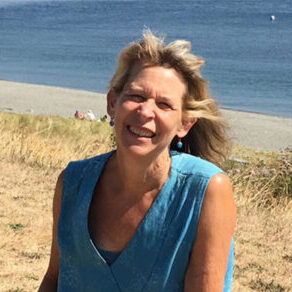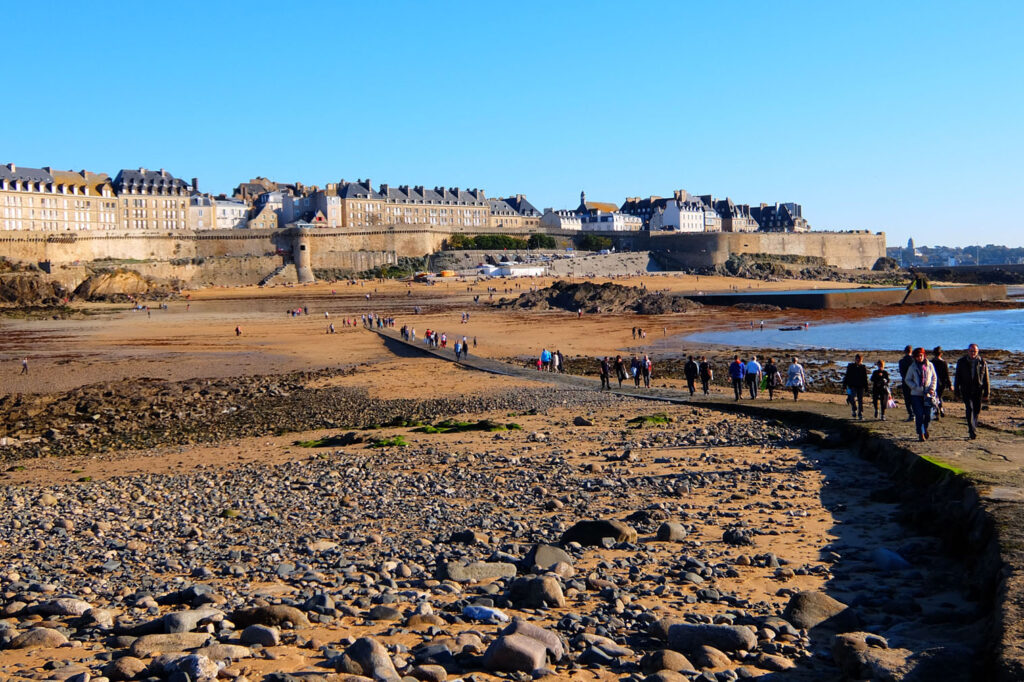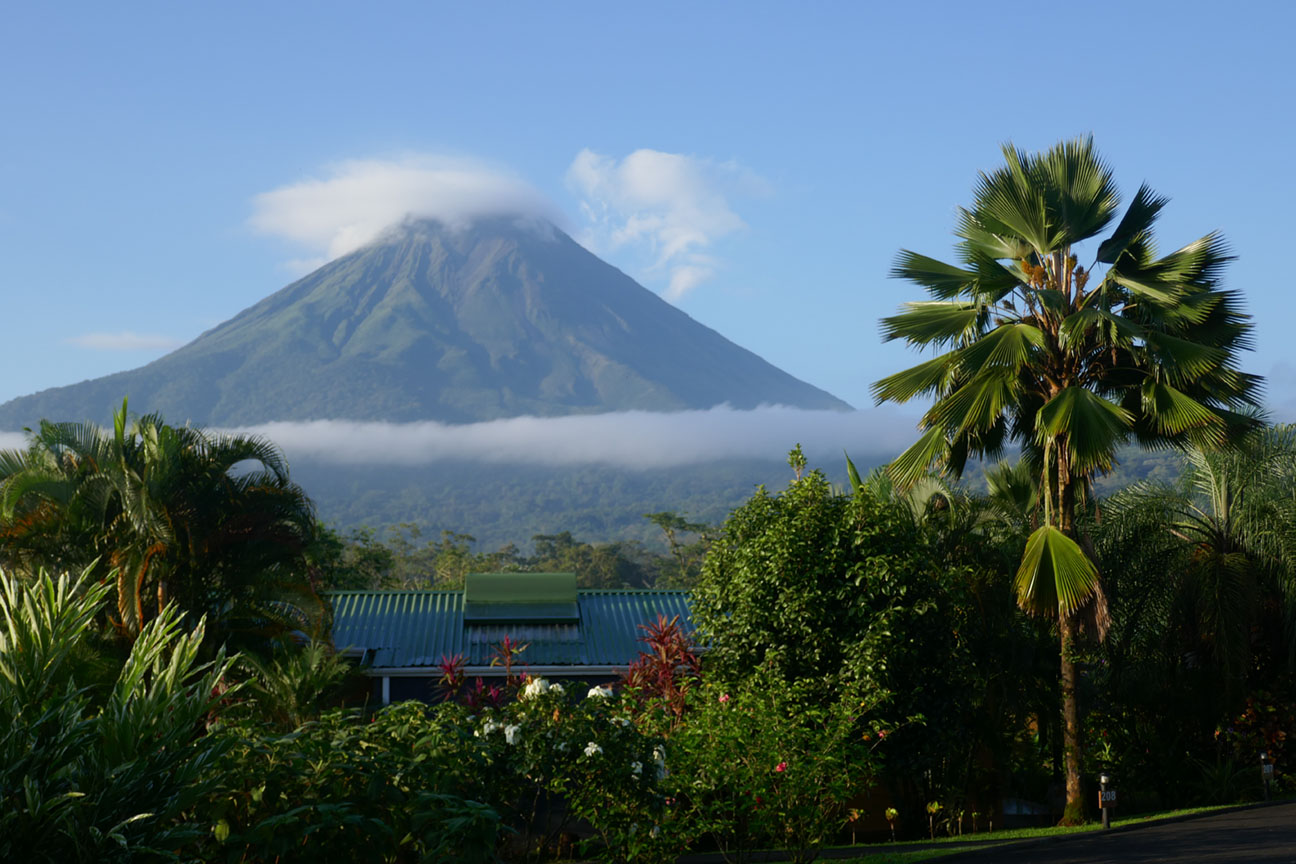Summer 2019
2
Looking Inside
the Outside Experience
Holly Hughes, OE Coordinator (Class of 2006)
Looking Inside the Outside Experience

Holly Hughes
OE Coordinator
Class of 2006
For fourteen summers now, at the end of July, I’ve packed my Subaru Forester and headed south across the Narrows Bridge to PLU for residency. For the first three years, I was a student, graduating in 2006 with M. J. Iuppa in the “pioneer” class. The co-directors, Stan and Judith, put on an unforgettable graduation, complete with a harpist and, of course, speeches that well exceeded the time it took us to walk across the stage and receive our diplomas.
But in no way was I ready to leave my long-awaited, freshly bonded community of writers, so I told Stan I’d like to stay involved, and he suggested coordinating the Outside Experience. Stan knew I had some experience to draw on, having attended residencies at the Vermont Studio Center, Hedgebrook, and Centrum. At the end of my Centrum residency in Port Townsend, we met for lunch so I could turn in my OE Report. As we were finishing our desserts, I mentioned an idea that had been tugging at my sleeve: editing an anthology of poems and prose about Alzheimer’s disease. My mother had passed away a few years earlier, and I wanted to do something in her memory. You should do that, Judith said, interrupting Stan, who was ready to sign off on the OE paperwork. I’ll put you in touch with Ed Hirsch and a few other poets who’ve written poems about Alzheimer’s.
By the time we paid the check, I had a list of names and emails and was embarking on a whole new Outside Experience, one that would challenge me in ways I couldn’t know. It’s not that the residencies hadn’t been valuable; they reminded me that I work most productively when I immerse myself fully in a project, eating, breathing, and walking with it every day. Those experiences also reminded me that I’m inspired by the creative energy of others but need to know when to close my door. This project would allow me to honor the vow I’d made during those difficult years of losing my mother to Alzheimer’s—when I’d turned to poetry, both my own and others'—to someday assemble a collection I hoped could help others.
"This project would allow me to honor the vow I’d made during those difficult years of losing my mother to Alzheimer’s—when I’d turned to poetry, both my own and others'—to someday assemble a collection I hoped could help others."
I share this because this realization informs the approach I’ve taken as OE Coordinator, encouraging students to pursue an OE they feel passionate about, even if it’s just a whisper of an idea, but one that is also sustainable in the midst of busy work, family, and writing lives. While I don’t recommend changing your plan at the last minute as I did, I’ve seen a version of my experience played out again and again. Whenever a student says, This is something I’ve always wanted to do, but I’m not sure where to start, I’m there to respond, Great. Here’s one place to start, and to provide the encouragement and resources to try to make it happen. Over the last twelve years, I’ve watched students undertake courageous projects that led them to a deeper understanding of what it means to commit to the writing life. While their experiences may not be unique, our program is: it’s one of a handful of MFA programs that requires a hands-on experience, defined broadly enough that everyone can find the right match for their life circumstances. These experiences have encompassed residences, retreats, workshops, teaching, publishing internships, travel, community service, and more.
Over the last twelve years, I’ve had the privilege of working with over 200 students on their Outside Experiences. For me, it has been a gift to be able to work one-on-one with students on a meaningful project, especially after twenty-five years of teaching composition and introductory creative writing classes, often with thirty students in each class. In each case, I’ve enjoyed working together to come up with a challenging project that would fit the constraints of the student’s work life, family needs, and writing mentorship. During this time, they’ve continually astonished me with the range and depth of their pursuits. Here’s a sampling:
They have attended residencies at the Vermont Studio Center, the Anderson Center, Hedgebrook, Artsmith, and CantoMundo; they’ve attended the Kachemak Bay Writers’ Conference, Fishtrap, Squaw Valley, Tomales Bay, and the Home School; they’ve interned with The Georgia Review, Copper Canyon Press, Calyx Press, and Pleides; they’ve established or worked on a reading series, including the Beatnik Lounge Visiting Writers Series, the Mountain Writers Series, and WordsWest.


They’ve taught creative writing to inmates in a Mexican prison, participated in PEN America’s Prison Writing Mentorship program, worked with Lummi tribal members and Nisqually tribal elders, taught writing and yoga workshops, and taught writing to troubled teens and kids. They have set up their own writing retreats at fire lookouts in Oregon; at forest service cabins in Washington State; in Estes Park, Holden Village, Rancho Linda Vista; and at monasteries like Nada Hermitage and Christ of the Desert.
In the service of their writing, they have conducted research in France, Rome, Costa Rica, Hanford, Washington, and Kentucky; they’ve traveled to Italy, Antarctica, Tibet, Korea, the Dominican Republic, Japan, Laos, and Bali; they’ve taken the Trans-Siberian Railway, sending blog posts along the way. They’ve signed up for surfing lessons, pole dancing, and circus school; they’ve studied stand-up comedy, meditation, and yoga. And in every case, students reflected thoughtfully on how these practices allowed them to address blocks or other challenges in their writing.
I’m proud of every one of them. I’m also proud of our program for this requirement and for fostering a culture where engagement with our larger community matters, where our students are encouraged to find meaningful ways to interact with and give back to the communities that sustain us. My hope is that when students leave, they take with them not just a diploma and a thesis, but a belief in their own agency in creating a meaningful literary experience, one that may serve them in more ways than they can imagine.
"My hope is that when students leave, they take with them not just a diploma and a thesis, but a belief in their own agency in creating a meaningful literary experience, one that may serve them in more ways than they can imagine."
As difficult as it is to leave after all these years—will anyone else remember who received the first volley of marshmallows at the Faculty House after our last dinner back in 2004?—I’m delighted to be passing the baton into the able hands of Hannah Comerford, who will graduate this coming residency. Hannah brings a variety of RWW experiences to this role, having been an undergraduate student assistant and an editor of Soundings, in addition to her top-notch technical and organizational skills as a freelance editor.
We’ll be sharing the OE Coordinator role this summer, as I’ll return for one more residency with Hannah assisting on every level, from conducting the business session to conferencing with second-year students. I’m already grateful for Hannah’s technical skills in putting together the OE presentation; thanks to her, we’re adding short videos as an option. I’ll continue to be available to the program for questions, so the transition will take place over the next year.
So, this isn’t farewell yet. I’m looking forward to the early-morning walks with the sprinklers whirring, more talk of writing and politics over breakfast at South Hall, racing up the stairs to Xavier, more mysteriously connected craft talks, and more moving, inspiring graduate and faculty readings. I’m looking forward to one more almost-but-not-quite-rained-out picnic, one more auction with Mike Hunter as MC (I hope!), one more drink at Marzano, one more tearful graduation, followed by one more dinner at the Lobster Shop. As usual, I’ll be arriving halfway through the residency and will be there for just four days, but I intend to pack them full, and I look forward to seeing you all there!
Holly J. Hughes’s fine art chapbook, Passings, received an American Book Award from the Before Columbus Foundation in 2017. She is the author of Sailing by Ravens, co-author of The Pen and the Bell: Mindful Writing in a Busy World, editor of the award-winning anthology Beyond Forgetting: Poetry and Prose about Alzheimer’s Disease, and co-editor of Contemplative Approaches to Sustainability in Higher Education. Her poetry collection Hold Fast is forthcoming from Empty Bowl Press in 2020. Her poems and essays have appeared in a number of anthologies, including Poetry of Presence and Dancing with Joy. She’s a recipient of residencies at Hedgebrook, Centrum, the Vermont Studio Center, the Anderson Center, Artsmith, the HJ Andrews Experimental Forest, and Playa. Holly has also spent over thirty summers working on the water in Alaska, commercial fishing for salmon, skippering a sixty-five-foot schooner, and working as a naturalist on ships.
A graduate of the Rainier Writing Workshop, she’s grateful to have stayed on as staff for the last 12 years as coordinator of the Outside Experience. Currently, she leads writing and mindfulness workshops and consults as a writing coach. You can find out more about Holly at hollyjhughes.com.
